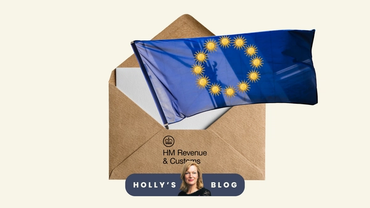Top money tips for couples: 5-step checklist to improving joint finances
By Boring Money
14 Feb, 2025
Managing money as a couple isn’t always easy. Love might be priceless, but bills, mortgages, and the taxman certainly aren’t. The good news? The UK tax system has a few handy perks for couples that can save you a decent chunk of cash - if you know where to look.

We spoke to Myron Jobson, Senior Personal Finance Analyst at interactive investor, for his top tips for couples looking to maximise savings, reduce tax, and improve their joint finances in 2025.
Remember the Marriage Allowance
The Marriage Allowance enables one partner to transfer up to £1,260 of their Personal Allowance to the other, provided the lower earner makes less than £12,570 a year and the higher earner is in the basic-rate tax band. This is worth up to £252 a year, or £2,520 over ten years.
Essentially, if one of you earns less than the annual Personal Allowance (£12,570), you can shift some of that unused allowance to the higher earner - cutting their tax bill by up to £252 a year. Not life-changing, but over a decade, that’s a nice £2,520 boost back into your pocket.
The best part? You can backdate claims for up to four years, meaning you could get a lump sum of past savings.
Make tax-free transfers between spouses
Assets can be transferred between spouses without triggering Capital Gains Tax. This means they can transfer shares, property, or other chargeable assets between each other at no gain, no loss. This allows couples to strategically manage tax liability by shifting ownership before selling an asset.
If you and your spouse or civil partner own assets - like investments or a second property - you can transfer them between you without the taxman sticking his hand out for Capital Gains Tax (CGT). That’s a big deal when selling assets, as it means you can make full use of both partners’ tax-free CGT allowance (£3,000 each for the 2024-25 tax year).
Let’s say you’re about to sell shares that would net a £6,000 gain. Instead of one partner taking the full hit, you could transfer half the shares to your spouse and each use your £3,000 CGT-free allowance, cutting the tax bill to zero. Smart, right? St James’s Place has a helpful article that explains in more detail below.
Be dividend savvy
Each individual has a dividend allowance of £500. By splitting investment ownership, a couple can double the tax-free dividend allowance, reducing taxable income.
Dividends (a.k.a. payments from shares or investment funds) come with their own tax-free allowance of £500 per person. So, if you’re sitting on an investment portfolio generating dividends, a simple trick is to split the ownership of these investments between the two of you.
By doing so, you double the tax-free dividend allowance to £1,000 per year as a couple. This is especially useful if one partner is a lower earner, as their dividends may even fall within their tax-free Personal Allowance - meaning no tax at all.
Remember, the annual dividend allowance for all UK adults is £500. However, the rate of tax you pay on dividends which exceed this differs depending on your usual Income Tax band. Check the tables below for a breakdown.
Dividend allowance, 2024-25 tax year
Tax Year | Annual Dividend Allowance |
2024-25 | £500 |
Source: HMRC, correct as at 2024-25 tax year.
Tax rates on dividends, 2024-25 tax year
Income Tax Band | Tax Rate on Dividends (above allowance) |
Basic | 8.75% |
Higher | 33.75% |
Additional | 39.35% |
Source: HMRC, correct as at 2024-25 tax year.
Double up your ISA allowances
Each individual has an annual ISA allowance of £20,000, meaning a married couple can collectively contribute up to £40,000 per year into ISAs, allowing them to shelter a significant amount of investments and savings from tax.
ISAs (Individual Savings Accounts) are the government’s way of letting you grow savings and investments without worrying about tax. The annual limit per person is £20,000, but if you’re a couple, you can combine forces and together shield up to £40,000 from the taxman every year.
Whether you favour a Cash ISA for easy access savings or a Stocks & Shares ISA for long-term investing, maxing out your combined ISA allowance each year can make a massive difference in building a tax-free nest egg.
Join forces on Inheritance Tax
Transfers between spouses (or civil partners) are completely exempt from IHT, regardless of the amount. Each individual has a nil-rate band (NRB) of £325,000, meaning the first £325,000 of their estate is IHT-free. If assets are left to a spouse, the unused NRB transfers to them, effectively doubling the couple’s tax-free allowance to £650,000. If passing the family home to direct descendants (children or grandchildren), each person gets an additional £175,000 residence nil-rate band (RNRB). Like the NRB, if unused, the RNRB can be transferred to a spouse, increasing the total tax-free allowance to £1 million (£650,000 + £350,000).
Inheritance Tax (IHT) is notoriously complex and can be a nasty surprise for families often in the depths of grieving. However, the good news is that couples get some serious tax perks and can reduce the size of IHT bill they pass onto their loved ones. Spouses and civil partners can pass assets between each other tax-free, and any unused Inheritance Tax allowance rolls over, untouched.
For the 2024-25 tax year, individuals get a £325,000 nil-rate band (everything above this is charged at a hefty 40%). This doubles to £650,000 for couples. On top of that, if you’re passing on your primary home to your direct descendants - children or grandchildren - you each get an additional £175,000 “residence” nil-rate band. Altogether, the total tax-free threshold can rise to as much as £1 million for couples.
One thing to watch out for: If your estate is worth over £2 million, the residence nil-rate band starts to shrink, reducing by £1 for every £2 over the limit. So, careful estate planning can help avoid unnecessary tax bills.
Top money habit for couples to avoid
As for what not to do, Jobson maintains it’s all about communication – or lack thereof. Although money can be a sensitive topic, and when purse strings are tight it can be tempting to hide the full extent from your partner, he says the most important thing is to be open and honest about your finances at all times.
One of the biggest financial pitfalls couples fall into is failing to communicate openly about money. Avoiding conversations about budgeting, spending habits, and financial goals can lead to resentment and financial instability down the line. Equally damaging is keeping financial secrets - whether it’s hidden debt or undisclosed spending - which can erode trust. A joint approach to money with clear transparency is key to avoiding financial friction in relationships.
5 steps to improve joint finances
Managing money as a couple isn’t just about splitting bills and arguing over who spent what on what. With the right strategies, you can use the UK tax system to your advantage and keep more of your hard-earned cash.
From tax-free transfers to doubling up on allowances, these simple tweaks can make a difference in the long run and help you optimise your joint finances. Here’s a 5-step checklist to get you started:
If one of you earns under £12,570 and the other is a basic-rate taxpayer, you can shift £1,260 of unused allowance and save up to £252 a year. You can even backdate it for a lump sum boost.
Married? Civil partners? You can transfer shares, property, and other investments between you without triggering Capital Gains Tax. That means making the most of both your £3,000 allowances before selling.
Got investments? Each of you gets a £500 tax-free dividend allowance. Split ownership smartly and you can double it to £1,000 – easy savings on investment income.
Use both your £20,000 ISA allowances to stash up to £40,000 tax-free each year. Cash ISAs for savings, Stocks & Shares ISAs for investing – mix and match as needed.
Transfers between spouses are IHT-free. Plus, your £325,000 allowance rolls over, meaning up to £650,000 tax-free. Pass your home to kids and that could hit £1m – just keep an eye on the £2m estate threshold.
And if all else fails? There’s always the age-old tactic of letting the most spreadsheet-loving partner take charge. Good luck!
Post a comment:
This is an open discussion and does not represent the views of Boring Money. We want our communities to be welcoming and helpful. Spam, personal attacks and offensive language will not be tolerated. Posts may be deleted and repeat offenders blocked at our discretion.






